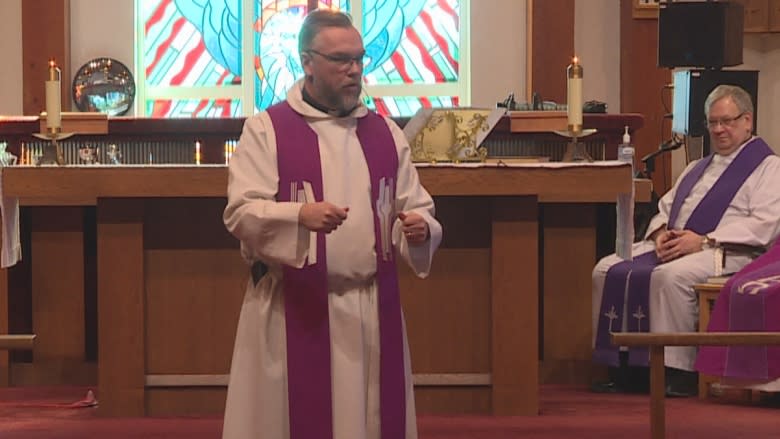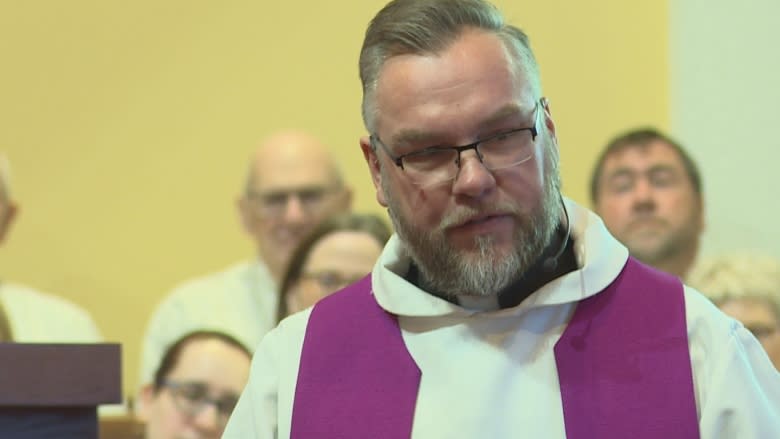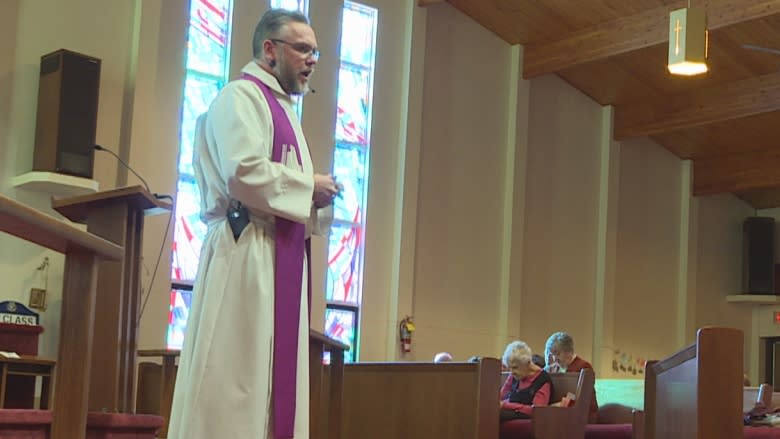How the suicide of a reverend's father brought mental health discussions to a St. John's church
Reverend Robert Cooke has helped many families navigate the grief that follows a suicide.
Last fall, he found himself in need of the same guidance.
In September, his 75-year-old father put out the garbage, took out some squid for supper and then went out to his shed and took his own life.
"One of my biggest struggles that I have with all of this is that he was alone when he died," said Cooke, who is the reverend at the St. Mark's Anglican Church in St. John's.
"That mental illness robbed him of his time with his family to say goodbye, to say that we love you, to say that it's OK for you to go, you've lived a good life."
Looking back, there were signs
Cooke says his father was a happy, outgoing person.
"He was great at teasing people and getting people to laugh, and breaking down barriers with people," he said.
"He always appeared to be very happy and carefree."
It was only looking back on his father's behaviour and the things he said that Cooke can see that he was struggling.
"He was always a very anxious person. He couldn't deal with stress very well, or with conflict very well," he said.
He was on medication, but Cooke doesn't think he took it properly.
"He died a couple of days before he was supposed to go back to the doctor, where my hope was that he was going to be hospitalized," he said.
"But he never made it."
Encouraging people to ask for help
Cooke has been open with the St. Mark's congregation about his father's death, even writing a post on Facebook encouraging people to seek help when they need it.
"If you struggle with any kind of mental illness — and let's be honest, most of us do at some point — then ask for help," he wrote.
"You are not alone."
He's hoping to make it easier for people to talk about mental illness and about mental health.
Throughout Lent, St. Mark's has been hosting a discussion series about mental health, with topics ranging from suicide to post-traumatic stress disorder.
"We've come a long way as a society, as a church, being able to talk about theses things, but we still have a ways to go," he said.
He said that almost immediately after his father died, people were reaching out to him with their own stories.
"People were saying to me, especially men his age, 'I struggle with mental illness, with depression, too. I've had the same dark thoughts that your father had.'"
His father, he said, wasn't able to ask for that kind of help.
"I think he was really afraid to show any sign of weakness, so I don't think it was in his nature to ask for help. He was always the type of person to take care of everybody else."
Taking care of his own mental health
And while he's working to help people take care of their own mental health, he said he's had to do some work to take care of his.
He forgives his father entirely — "I have no anger in my heart toward him at all," he said — but forgiving himself has been difficult.
"I think people's instinct in these situations is to blame yourself, to wonder, 'Is there something I could have done differently, is there something I could have said differently?'" he said.
"It's taking longer, but I'm getting there."






